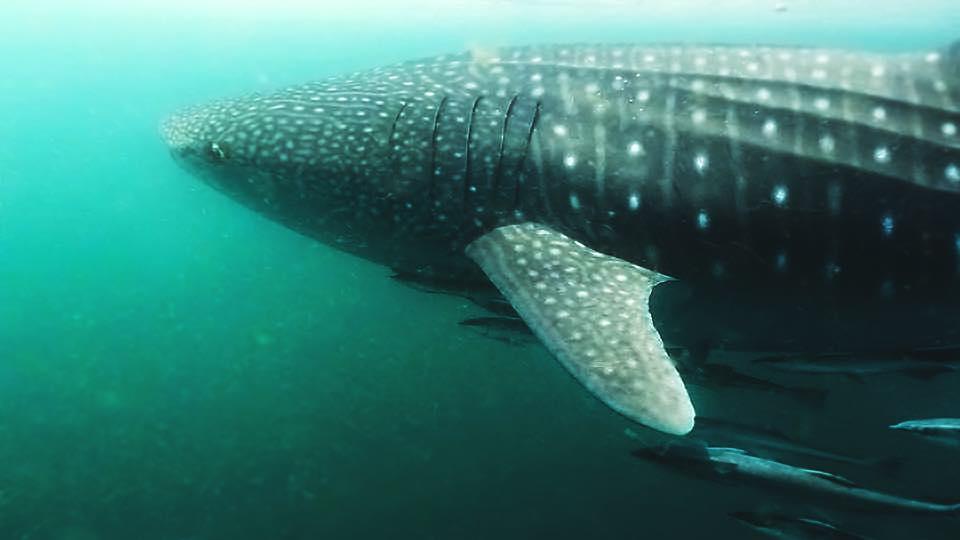Are Glittering Lights Luring Sharks To Dubai?

It seems tourists aren't the only ones dazzled by the opulence of Dubai. A recent string of shark sightings has shocked this city, known for its luxury shopping and towering glass skyscrapers.The most recent visitor was a four-meter long adolescent whale shark, seen swimming towards a group of man-made islands just off the shores of Dubai. So far this year, the islands, known as The Palm, have hosted at least 10 such whale shark sightings.
Whale Shark chilling at Dubai Marina pic.twitter.com/GY4fOtvh5l
-- Khalid | ???? (@kharta3) August 27, 2015
Native to the Gulf Coast, whale sharks are uncommon to Dubai, but their population has increased with the coming of the summer months. This is traditionally when the sharks begin to congregate off the Coast to mate and feed.
The sharks seem to be following plankton, which are swimming toward the bright lights of the city. "I personally think they're attracted by food. Marinas and ports have plenty of lighting; zooplankton, which whale sharks feed on, are attracted to lighting at night," said David Robinson PhD, a marine biologist and the creator of sharkwatcharabia.com, a site that reports encounters with sharks around the region.
In 2010 Robinson began an investigation into the ecology of Gulf whale sharks. His methodology includes satellite and acoustic tagging, genetic analysis, environmental data collection, plankton sampling, and pattern identification to recognize individuals within the population. (Whale sharks are well known for their distinctive spots.)
"I have evidence of feeding in one particular marina, and our explanation make sense. Whale sharks usually hang around for a few days then make their way out again."
Robinson recently helped spearhead the largest satellite whale shark tagging initiative ever carried out. Though his findings are still in review, in the past he's published several academic papers on the abundance and movement of whale sharks in the Arabian Gulf.
There are currently 32 known species of sharks in the Gulf and even more in the Gulf of Oman, where Robinson is completing new research.
"The Gulf is an extreme marine environment due to high salinities and temperature, which limits the number of species that can survive. But it does host some interesting marine life and these unique environmental conditions create fascinating research opportunities."
For more information on Arabian Gulf sharks visit http://www.sharkwatcharabia.com.



